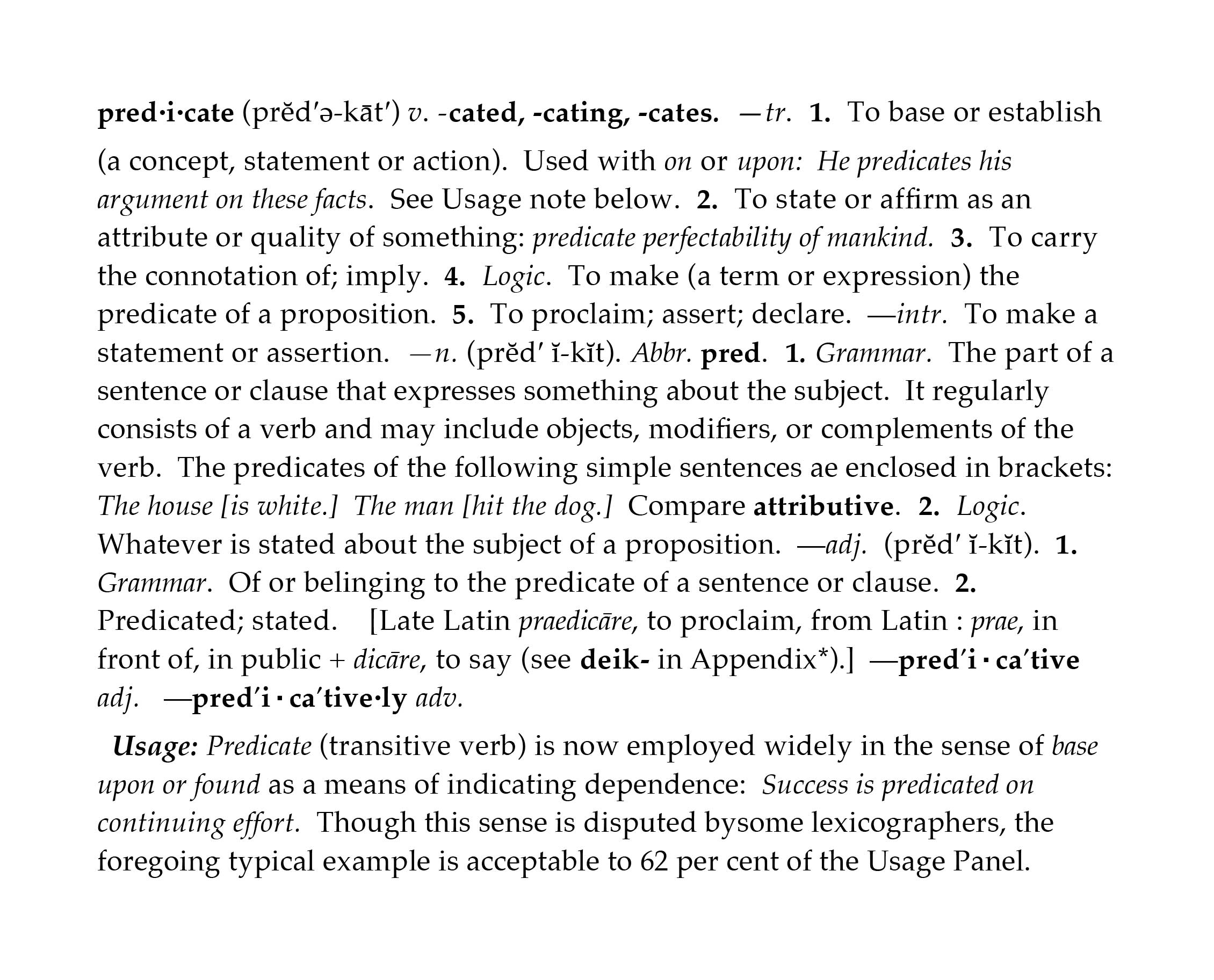An experiment in web formatting & typesetting:
pred∙i∙cate (prĕd′ǝ-kāt′) v. -*cated, -cating, -cates.
—*tr. 1. To base or establish (a concept, statement or
action). Used with on or upon: He predicates his argument on these
facts. See Usage note below. 2. To state or affirm as an attribute
or quality of something: predicate perfectability of mankind. **3.
**To carry the connotation of; imply. 4. Logic. To make (a term or
expression) the predicate of a proposition. **5. ** To proclaim; assert;
declare. —intr. To make a statement or assertion. *—n. *(prĕd′ ĭ-kĭt).
Abbr. pred. *1. ***Grammar. The part of a sentence or clause
that expresses something about the subject. It regularly consists of a
verb and may include objects, modifiers, or complements of the verb. The
predicates of the following simple sentences ae enclosed in brackets:
*The house [is white.] The man [hit the dog.] *Compare
attributive. 2. Logic. Whatever is stated about the subject of
a proposition. —adj. (prĕd′ ĭ-kĭt). 1.* Grammar*. Of or belinging
to the predicate of a sentence or clause. 2. Predicated; stated.
[Late Latin praedicāre, to proclaim, from Latin : prae, in front
of, in public + dicāre, to say (see deik- in Appendix*).]
—**pred′i∙ca′tive *adj. *—pred′i∙ca′tive∙ly *adv.*
_ Usage:**_ *Predicate *(transitive verb) is now employed widely in
the sense of base upon or found as a means of indicating dependence:
*Success is predicated on continuing effort. * Though this sense is
disputed bysome lexicographers, the foregoing typical example is
acceptable to 62 per cent of the Usage Panel.
